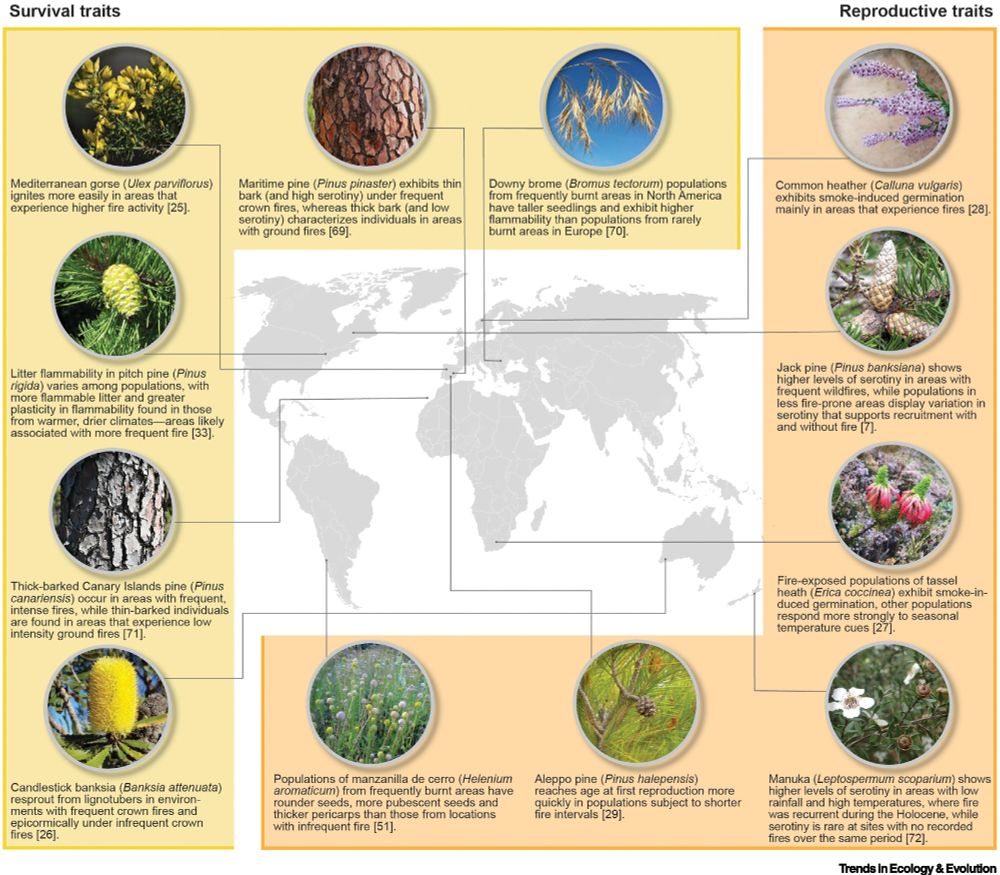

To name a few:
🪲Boheman weevils (Santos et al. 2025)
🐿️Eastern fox squirrels (Potash et al. 2020)
🦗Pygmy grasshoppers (Forsman et al. 2011)
🦎The Mediterranean lizard Psammodromus algirus (Álvarez-Ruiz et al. 2021)
To name a few:
🪲Boheman weevils (Santos et al. 2025)
🐿️Eastern fox squirrels (Potash et al. 2020)
🦗Pygmy grasshoppers (Forsman et al. 2011)
🦎The Mediterranean lizard Psammodromus algirus (Álvarez-Ruiz et al. 2021)

A type of phenotype-environment mismatch that brings together ecological and evolutionary fire science and supports forecasts of fire-driven environmental change.

A type of phenotype-environment mismatch that brings together ecological and evolutionary fire science and supports forecasts of fire-driven environmental change.

Traits such as resprouting and serotiny help plants thrive in fire-prone areas.

Traits such as resprouting and serotiny help plants thrive in fire-prone areas.

